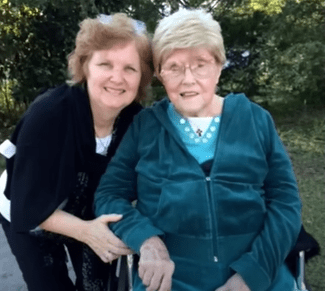Introduction
As America’s population ages, the burden of caregiving falls disproportionately on women. By 2050, one in four Americans will be over 65, increasing the need for medical care and support. Women constitute a significant portion of both unpaid and paid caregivers, facing financial, physical, and emotional challenges.
The Role of Women in Caregiving
Women make up nearly 60% of unpaid caregivers and over 80% of paid in-home caregivers for seniors in the United States. This caregiving responsibility often takes a toll on their financial stability and overall well-being.
Personal Stories of Caregiving
- Ruth Leal from Virginia: Ruth started caring for her 82-year-old father 12 years ago when he was diagnosed with prostate cancer. Balancing caregiving with finishing college and starting her career has been a significant struggle.
- Kenya Servia from North Carolina: Kenya has been a caregiver since was 8 years old, starting with her great-grandmother, then her grandmother, and now her mother. Transitioning to a role of authority over her parents has been particularly challenging.
- DeAnza Valencia from New Mexico: DeAnza became the primary caregiver for her mother, who needed a liver transplant. She had to leave her business, relocate, and saw her marriage suffer due to the caregiving responsibilities.
- Aileen Ruess: Aileen cared for her mother for 15 years and is currently taking care of her husband. She highlights the neglect of personal health and the necessity of a supportive community for caregivers.
Challenges Faced by Women Caregivers
Caregiving often leads to financial hardship, with women caregivers losing an average of $320,000 in lost income and social security benefits. This financial impact extends into retirement, compromising their future security. Psychological stress is also significant, with higher rates of depression and anxiety among caregivers.
The Need for Support and Recognition
Many caregivers neglect their own health and well-being, and often feel isolated. The lack of support from employers and the broader community exacerbates these challenges. There is a critical need for policies that provide paid caregiver leave and recognize the essential role of caregiving in society.
Cultural and Societal Implications
Historically, caregiving has been viewed as a woman’s role, a norm that persists despite the increasing participation of women in the workforce. This outdated notion needs to be addressed to distribute caregiving responsibilities more equitably.
Future Preparedness for Aging Populations
To better prepare for the aging population, the U.S. must implement policies that support caregivers, such as paid leave and recognition of caregiving responsibilities. The current work environment must adapt to accommodate the human need to care for loved ones.
Conclusion
As the aging population grows, the demands on caregivers, particularly women, will increase. Recognizing and supporting caregivers through policy changes and societal shifts is essential for addressing the hidden crisis of caregiving in America.

